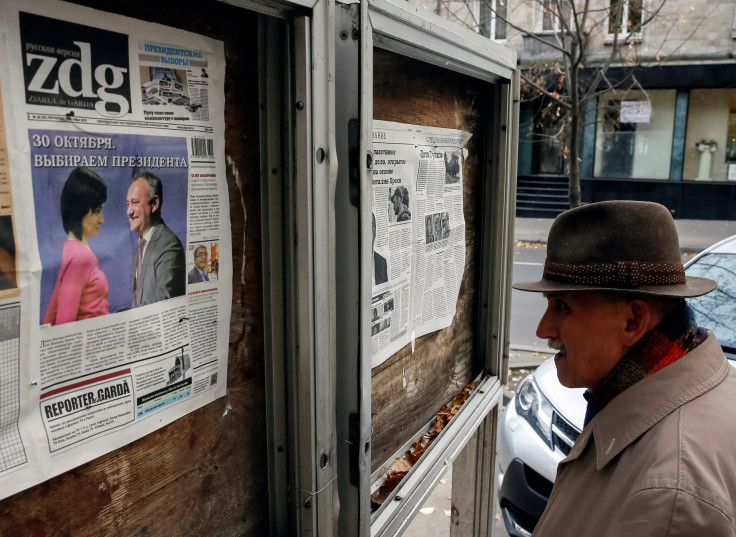Russia's Growing Influence In Europe: Moldova Election Results Come After Maneuvering In Bulgaria, Hungary, Latvia, Serbia and Slovakia

A pro-Russian candidate was leading in Moldova's presidential elections Monday in the latest sign of Russia's resurging influence in Eastern Europe. Igor Dodon won 48 percent of the vote out of nine candidates, but narrowly missed winning a majority of votes, sending the election into a Nov. 13 runoff.
Voters in the former Soviet Union republican were essentially asked to choose between closer integration with Europe or turning back to Moscow, and many choose the later. Pro-Europe candidate Maia Sandu came in second in Sunday's election, with 38 percent of the vote in the nation's first presidential election by direct vote in two decades.
"The main conclusion is that voters no longer believe in this government. Our victory is inevitable," Dodon said.
Sandu blamed her disappointing election results on voter disenfranchisement, BBC News reported. "Today the young had a small turnout. I think it happened because the authorities impeded them from doing so. We will do everything to remove such obstacles in the second round," she said.
Russia has taken territory in Ukraine and Georgia in recent years, and has sought to control energy markets and other economic sectors in Bulgaria, Hungary, Latvia, Serbia and Slovakia, according to a study from the Center for Strategic and International Studies in Washington and the Center for the Study of Democracy in Sofia, Bulgaria, published earlier this month.
"In certain countries, Russian influence has become so pervasive and endemic that it has challenged national stability as well as a country's Western orientation and Euro-Atlantic stability," the report found.
Russian Orthodox Church officials have also sought to expand the Kremlin's influence in Eastern Europe by blocking efforts to work more closely with the West, such as in Moldova. Outside of Eastern Europe, Russia's state media outlets have sought to control debates on international issues and most recently helped sway a Dutch vote against a European trade agreement with Ukraine.
Moldova has since 1996 allowed parliament to name its presidents.
© Copyright IBTimes 2025. All rights reserved.






















